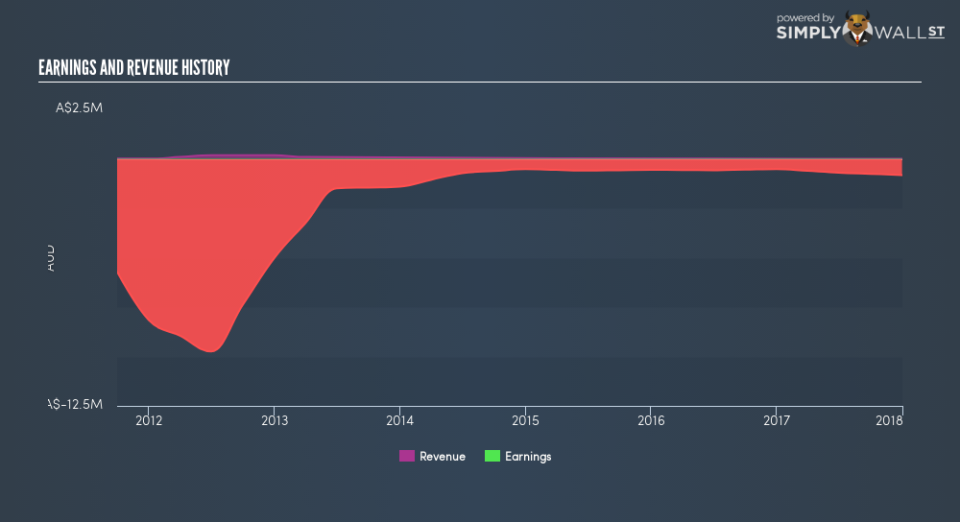Should You Worry About The Ardiden Limited’s (ASX:ADV) Shareholder Register?

Every investor in Ardiden Limited (ASX:ADV) should be aware of the most powerful shareholder groups. Institutions will often hold stock in bigger companies, and we expect to see insiders owning a noticeable percentage of the smaller ones. Warren Buffett said that he likes ‘a business with enduring competitive advantages that is run by able and owner-oriented people’. So it’s nice to see some insider ownership, because it may suggest that management is owner-oriented.
With a market capitalization of AU$15.1m, Ardiden is a small cap stock, so it might not be well known by many institutional investors. In the chart below below, we can see that institutions own shares in the company. Let’s take a closer look to see what the different types of shareholder can tell us about ADV.
See our latest analysis for Ardiden
What Does The Institutional Ownership Tell Us About Ardiden?
Many institutions measure their performance against an index that approximates the local market. So they usually pay more attention to companies that are included in major indices.
As you can see, institutional investors own 10.3% of Ardiden. This can indicate that the company has a certain degree of credibility in the investment community. However, it is best to be wary of relying on the supposed validation that comes with institutional investors. They too, get it wrong sometimes. If multiple institutions change their view on a stock at the same time, you could see the share price drop fast. It’s therefore worth looking at Ardiden’s earnings history, below. Of course, the future is what really matters.
Our data indicates that hedge funds own 5.1% of Ardiden. That’s interesting, because hedge funds can be quite active and activist. Many look for medium term catalysts that will drive the share price higher. As far I can tell there isn’t analyst coverage of the company, so it is probably flying under the radar.
Insider Ownership Of Ardiden
While the precise definition of an insider can be subjective, almost everyone considers board members to be insiders. Company management run the business, but the CEO will answer to the board, even if he or she is a member of it.
Insider ownership is positive when it signals leadership are thinking like the true owners of the company. However, high insider ownership can also give immense power to a small group within the company. This can be negative in some circumstances.
Our most recent data indicates that insiders own a reasonable proportion of Ardiden Limited. Insiders own AU$1.7m worth of shares in the AU$15.1m company. I would say this shows alignment with shareholders, but it is worth noting that the company is still quite small; some insiders may have founded the business. You can click here to see if those insiders have been buying or selling.
General Public Ownership
The general public, mostly retail investors, hold a substantial 71.1% stake in ADV, suggesting it is a fairly popular stock. This size of ownership gives retail investors collective power. They can and probably do influence decisions on executive compensation, dividend policies and proposed business acquisitions.
Next Steps:
While it is well worth considering the different groups that own a company, there are other factors that are even more important.
I like to dive deeper into how a company has performed in the past. You can find historic revenue and earnings in this detailed graph.
If you would prefer check out another company — one with potentially superior financials — then do not miss this free free list of interesting companies, backed by strong financial data.
NB: Figures in this article are calculated using data from the last twelve months, which refer to the 12-month period ending on the last date of the month the financial statement is dated. This may not be consistent with full year annual report figures.
To help readers see past the short term volatility of the financial market, we aim to bring you a long-term focused research analysis purely driven by fundamental data. Note that our analysis does not factor in the latest price-sensitive company announcements.
The author is an independent contributor and at the time of publication had no position in the stocks mentioned. For errors that warrant correction please contact the editor at editorial-team@simplywallst.com.


